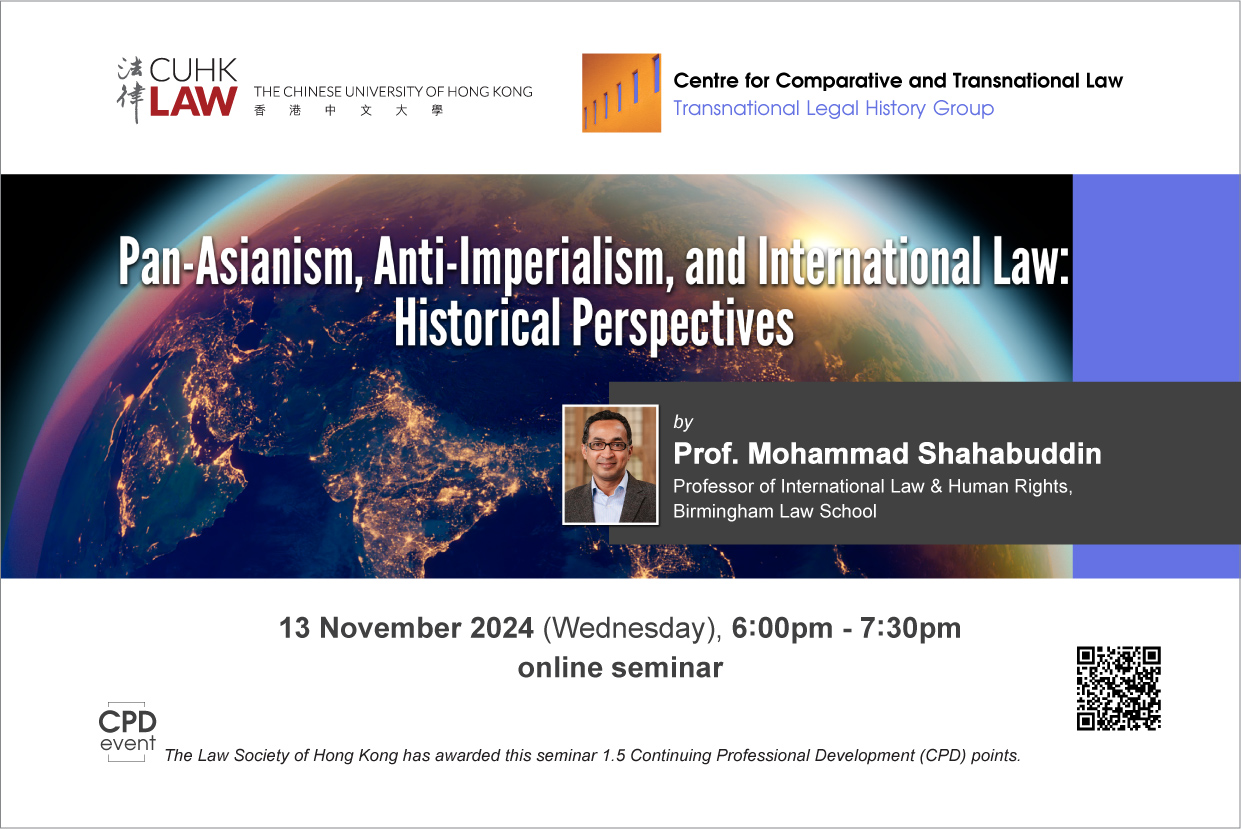活動
CUHK LAW CCTL Transnational Legal History Group Seminar – ‘Pan-Asianism, Anti-Imperialism, and International Law: Historical Perspectives’ by Prof. Mohammad Shahabuddin (Online)
2024年11月13日
6:00 pm – 7:30 pm (HKT)
Online via Zoom
Professor Mohammad Shahabuddin teaches and researches in international law and human rights with special focus on the history and theory of international law, ethnicity and nationalism, and human rights. His teaching and research is informed by critical, postcolonial, and TWAIL (Third World Approaches to International Law) scholarship. He is the author of Ethnicity and International Law: Histories, Politics and Practices (Cambridge University Press, 2016) and Minorities and the Making of Postcolonial States in International Law (Cambridge University Press, 2021). The latter is part of the prestigious Cambridge Studies in International and Comparative Law series. He is also the editor of the seminal volume Bangladesh and International Law (Routledge, 2021) and an Editorial Board member of the Asian Journal of International Law. Shahab is a recipient of the Leverhulme Trust Research Fellowship (2018-2020) and the Japan Foundation Fellowship (2016). He was Deputy Head of Birmingham Law School (Staffing and Strategy) in 2020-2021.
https://cloud.itsc.cuhk.edu.hk/webform/view.php?id=13694015
Registration Deadline: 12:30 pm (HKT), 12 November 2024
Pan-Asianism as a concept is conventionally associated with Japan’s imperialism during the Second World War. Pan-Asianism was not merely a language of hegemony, however, but rather had a more complex role to play in the early twentieth century. As an anti-imperial ideology, Pan-Asianism advanced a normative argument for the emancipation of Asia from Western imperialism and provided an alternative vision of civilization. As an anti-imperial strategy, Pan-Asianism offered Indian nationalist leaders in exile a necessary language to gain international support in favour of their nationalist movement. The ideological and strategic aspects of Pan-Asianism then affected and informed the development of contemporary international law with specific reference to the law of neutrality, the right to self-determination, racial equality, and the Monroe Doctrine. This lecture will shed light on this important yet ignored episode in the historical development of international law.
Language: English
The Law Society of Hong Kong has awarded this seminar 1.5 Continuing Professional Development (CPD) points.


